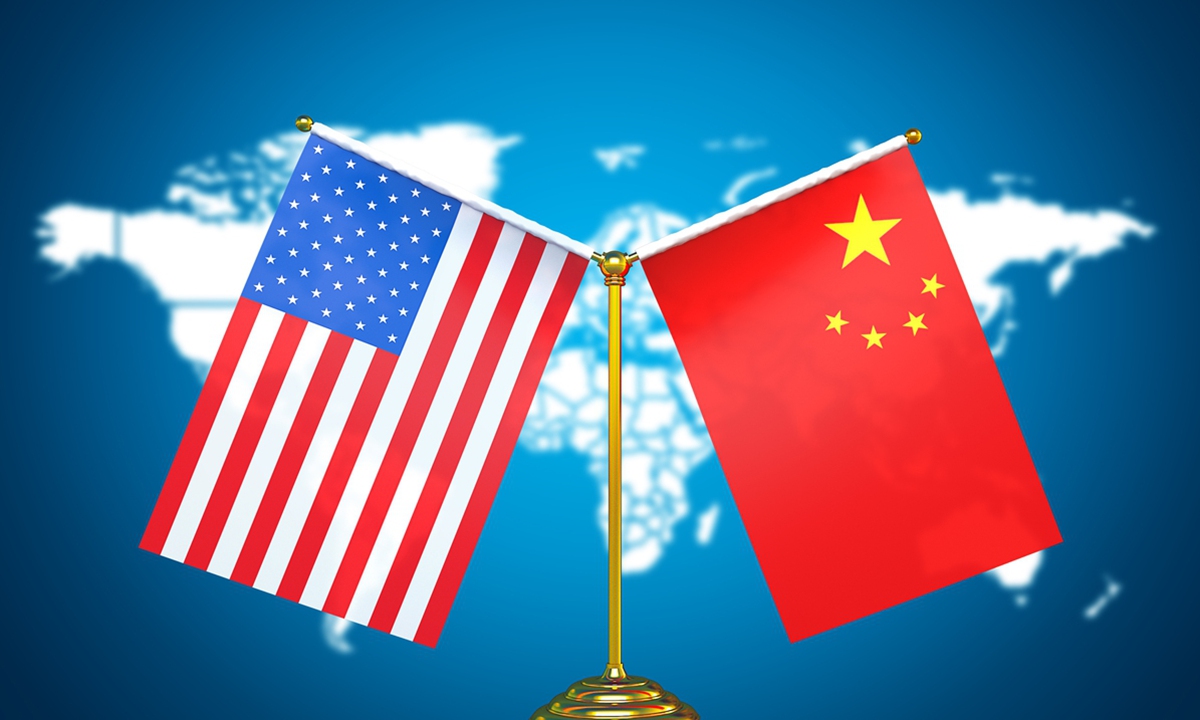
Photo: VCG
A Chinese scholar's metaphorical assessment of Biden's and Trump's China policies as two "bowls of poison" provides the Chinese audience with insight into the current state of China-US relations and the upcoming US presidential election.
This metaphor, evocative in its simplicity, encapsulates a critical viewpoint from across the Pacific: the policies of both Biden and Trump toward China are seen not just as unfavorable but as inherently detrimental. The only difference lies in the degree of toxicity.
This sentiment underscores a profound disillusionment of Chinese scholars with the current trajectory of bilateral relations, suggesting that if the choice between the two candidates is akin to selecting the lesser of two evils, there is no point in making a choice.
The underlying message is clear and poignant: Those who concoct the poison should be the ones to consume it.
Recent polls indicating Trump and Biden are neck and neck, with a marginal lead for Trump, underscore the uncertainty and high stakes of the upcoming election. Emerson's US presidential election poll shows Trump at 46 percent and Biden at 45 percent.
Yet, from China's perspective, the outcome may bear little difference in policy direction. The analogy of two individuals riding a tandem bicycle - with Trump initially in front and Biden at the back, and then changing positions - aptly illustrates that both candidates, despite their different positions, are pedaling along the same path when it comes to China.
This path, fraught with tensions and strategic confrontations, raises concerns that they will eventually fall into a deep trap, which they themselves created, or meet a collision with a robust red wall.
China's resilience in the face of what it perceives as adversarial policies from both Biden and Trump is noteworthy. This resilience is informed by a strategic calculus that seeks to navigate the treacherous waters of international politics without succumbing to external pressures.
The rumors of China's interference in the US elections, viewed within China as jests, reflect a broader understanding about the intentions behind such allegations.
This understanding is intertwined with a deeper apprehension regarding the future of China-US relations, especially the possibility of intensified containment and sanctions implemented by the next US administration.
Former US Secretary of State Mike Pompeo's comments on the changing US-China dynamics as an "economic war" emphasize the adversarial nature of this relationship. During a House Select Committee on the Chinese Communist Party hearing at the US Capitol in Washington on Tuesday, his call for the US to win by imposing strong measures to curb China's economic ambitions resonates with a significant part of the American political establishment. This perspective, advocating for a more aggressive stance toward China, adds complexity and uncertainty to an already volatile bilateral relationship.
Despite these challenges, China's commitment to maintaining détente and stabilizing its relations with the US is evident. This commitment is not born out of naivety. It is a strategic choice aimed at safeguarding China's national interests and ensuring the continuity of its rise on the global stage.
The recognition that the US might continue to create obstacles for China's global ambitions, but will not be able to halt its ascent, reflects confidence in China's resilience and capabilities.
While significant, the outcome of the US presidential election will not fundamentally redefine the dynamics of this complex relationship. The strategic game between these global powers will continue, and it will not be structurally shaped by a single election.
As the world watches the unfolding drama of the US election, the underlying message from China is clear: The path to a stable and constructive bilateral relationship lies not in confrontation but in mutual respect and understanding.




